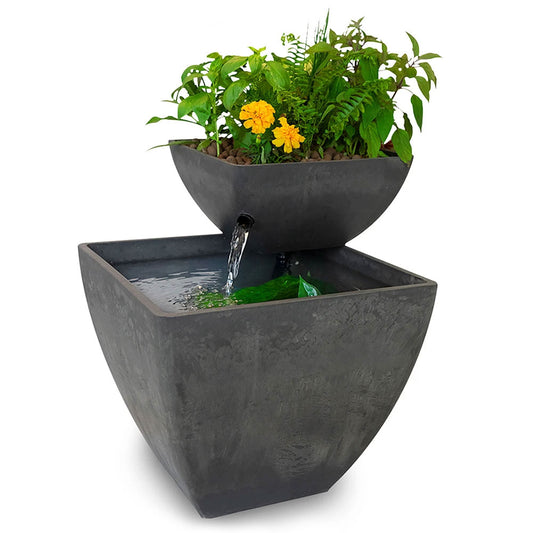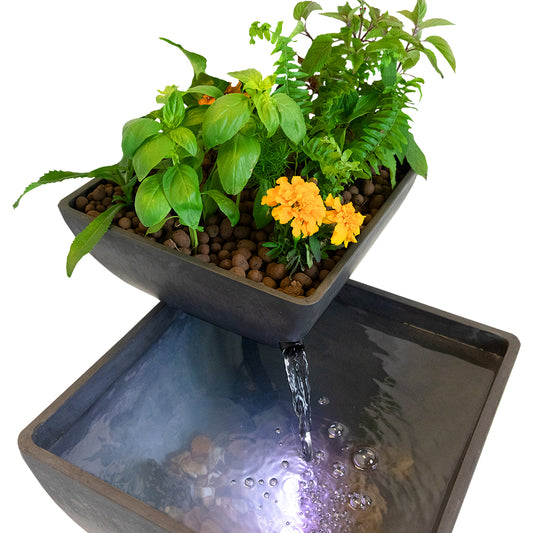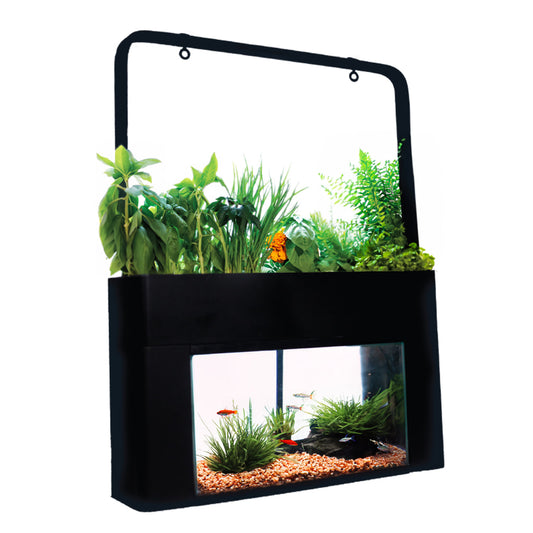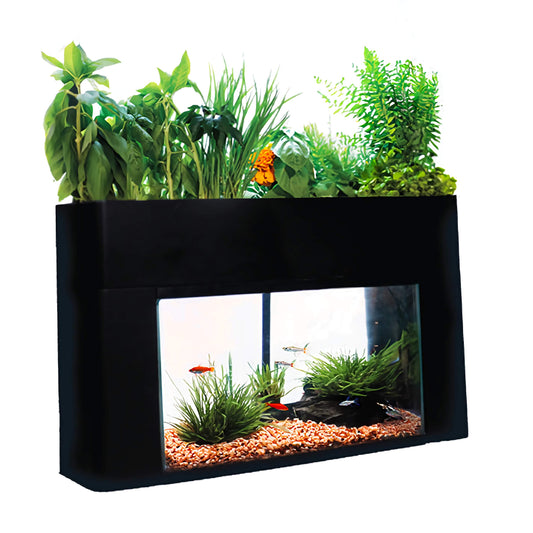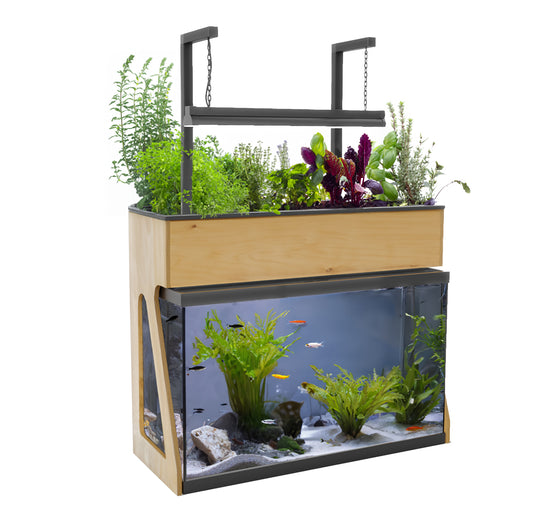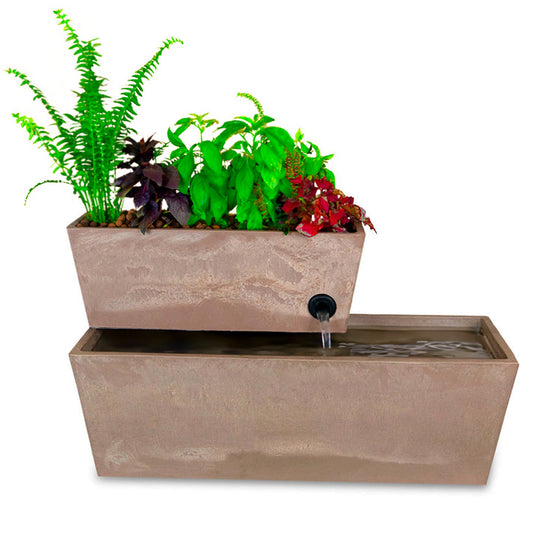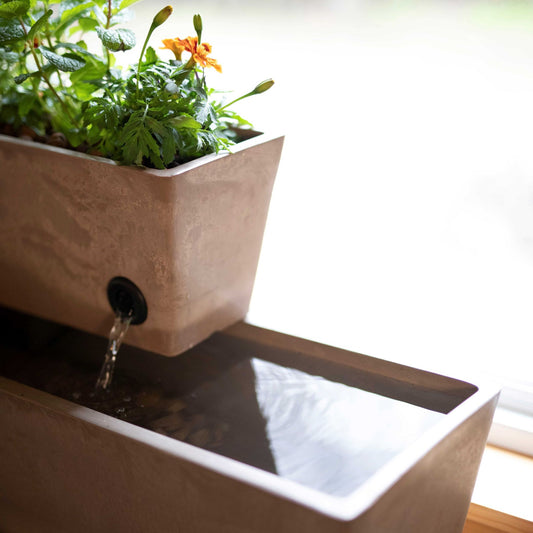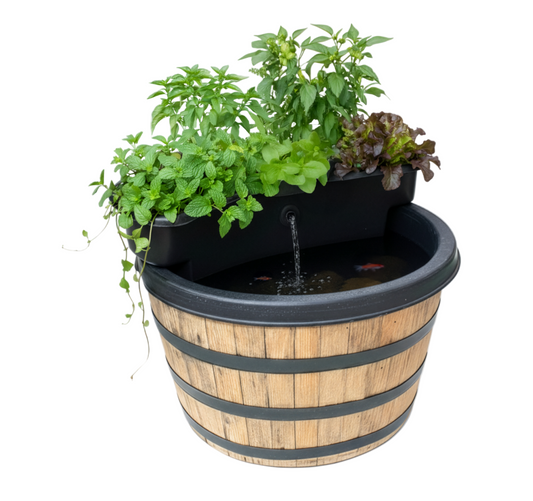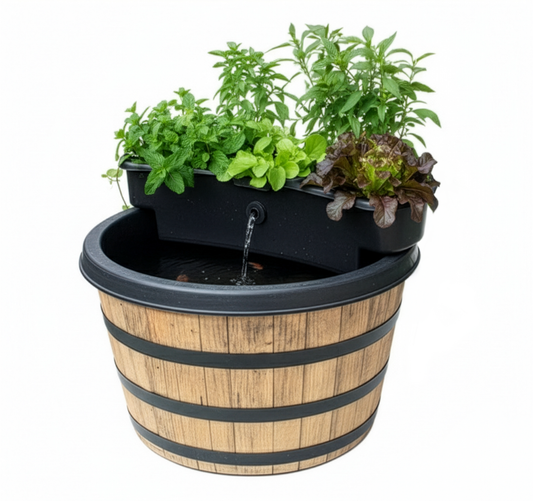Compost Tea - Straining Out Some Facts

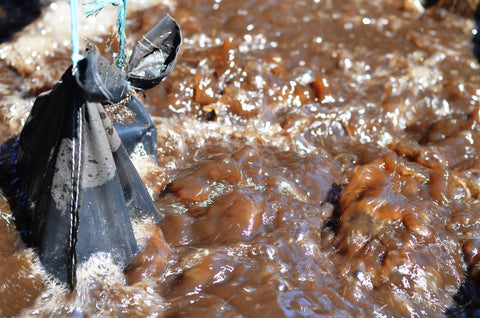
If you’ve read anything about gardening lately, there’s a good chance you’ve heard of compost tea. In the last few years, it’s gone from a niche technique used by a few permaculture growers to a hip garden cure-all, and every grower’s blog and garden supply shop seems to have their own recipe. In short, compost tea is a liquid supplement made by steeping compost in water. Variations use worm castings, manure, hot fresh compost, or simply a bag of commercial compost in a bucket of water. Contemporary techniques are mostly for aerated compost tea (ACT), in which the tea is mixed or aerated during steeping.
(Since so many techniques already exist online for making compost tea, we won’t repeat the information here, but you can find links to other resources at the end of the article, including recipes.)
Proponents make a lot of claims about the beneficial powers of compost tea. Many of these are quite straightforward; dissolving nutrients and minerals from compost in water will create a nutrient- and mineral-rich liquid that can be applied to plants. More interestingly, many users claim that spraying the leaves of plants with compost tea will add beneficial microbes which will help the plants resist disease. But is there anything to this?
The idea of steeping a nutrient-rich fertilizer in water to make a liquid supplement for plants has been around for a long time. It’s easy enough for agricultural labs to test for nutrients, and sure enough, water will take up some (but not all) nutrients from compost. This liquid can be applied to soil or growing media and may be more immediately available to plant roots than top-dressing with solid compost. Aeration and mixing of the tea while it steeps can increase uptake and will favor the development of aerobic bacteria, varieties which are typically found in healthy, well-drained soils. While there’s no real evidence that compost tea is a better fertilizer for your plants than dressing with compost, there’s little doubt it can be helpful, and it’s easy to apply.
The question on everyone’s mind when they learn about compost tea, though, is disease control. Will spraying your plants with compost water really help keep them healthy?
The short answer? Probably not.
There’s not a lot of well-controlled research on this subject. There’s so much variation in tea production and composition that it’s almost impossible to make broadly applicable statements about it what it might be good for. The studies which have been performed, however, have found very little evidence that teas will colonize your plants with benign microbes, or that these microbes will help the plants resist disease. Tea can be a very useful fertilizer, but if you’re having plant disease problems, consider additional measures to compost tea. (That doesn’t necessarily mean resorting to synthetic chemical treatments! There are many natural, DIY remedies out there you can try first. Experiment!)
Finally, an important note: a number of researchers and professional horticulturists have pointed out that there are some serious food safety concerns to using compost tea on edible plants. Compost can include potentially pathogenic organisms like E. coli and Salmonella, especially if you use a manure base, or if you supplement the tea with sugars (e.g. molasses) as many recipes call for. Wash edibles thoroughly if they’ve been treated with tea at all, and be especially careful if you’ve used a supplemented tea.
There are plenty of anecdotal accounts out there about the power of compost tea, and almost everyone has a different recipe and a different set of claims. We’ve summarized the best information we could find for you here, but your experience in your garden may be different! If you have experience with compost tea, feel free to leave us a comment and let us know what you did and how it worked out for you.
Sources & resources:
- Washington State University Extension: “Compost tea: Examining the science behind the claims” https://puyallup.wsu.edu/wp-content/uploads/sites/403/2015/03/compost-tea-4.pdf
- The Telegraph: “Compost tea: Does it really work?” http://www.telegraph.co.uk/gardening/gardeningadvice/11121288/Compost-tea-does-it-really-work.html
- Organic Growers School: “How does compost tea work?” http://organicgrowersschool.org/6830/ask-tom-how-does-compost-tea-work/
- Robinson Love Plants: “Compost Guide” https://robinsonloveplants.com/compost-guide/
- Root Simple: “Does Compost Tea Work?” http://www.rootsimple.com/2015/11/does-compost-tea-work/
- University of Vermont Extension: “Compost Tea to Suppress Plant Disease” https://www.uvm.edu/vtvegandberry/factsheets/composttea.html
- Garden Myths: “Compost Tea - Does it Work?” http://www.gardenmyths.com/compost-tea-does-it-work/
(Header image courtesy Stefano Lubiana and Granton Vineyards: https://www.flickr.com/photos/stefano_lubiana_wines/8104106894)

